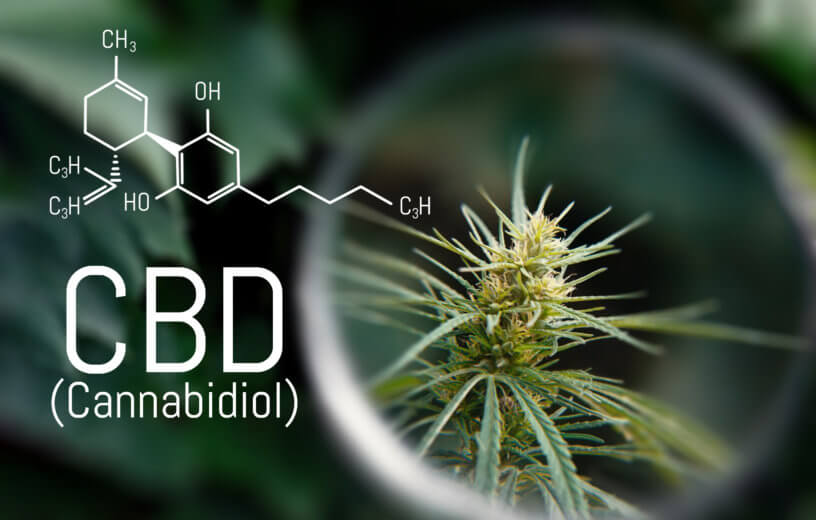BETHESDA, Md. — Cannabidiol, also known as CBD, is a non-psychoactive chemical found in marijuana that’s enjoyed a meteoric rise in popularity over recent years. While most of its benefits haven’t been clinically proven or received FDA approval, CBD proponents and users say the substance is capable of numerous health feats ranging from pain and anxiety relief to improved mood and sleep patterns. Now, a new study is adding another noteworthy addition to the list of its benefits. Researchers from Colorado State University say CBD has shown serious promise as an effective treatment against a particularly aggressive and hard to treat form of brain cancer.
The cancer, glioblastoma, is an incredibly devastating form of cancer due to its tendency to grow and spread quickly. Even with the latest cancer breakthroughs and treatments, the survival rate for glioblastoma is very low.
“Further research and treatment options are urgently needed for patients afflicted by brain cancer,” says Chase Gross, a student in the Doctor of Veterinary Medicine/Master of Science program at Colorado State University, in a media release. “Our work shows that CBD has the potential to provide an effective, synergistic glioblastoma therapy option and that it should continue to be vigorously studied.”
Both human and dog glioblastoma cells were analyzed by the study’s authors. Canine cells were included because this form of cancer, for whatever reasons, is quite similar in both dogs and humans. The effects of CBD isolate (100% CBD) and CBD extract were tested on the cancer cells. CBD extract contains small amounts of other cannabinoids, such as THC.
“Our experiments showed that CBD slows cancer cell growth and is toxic to both canine and human glioblastoma cell lines,” Gross adds. “Importantly, the differences in anti-cancer affects between CBD isolate and extract appear to be negligible.”
The tests revealed that CBD appears to be quite toxic for glioblastoma cells. The cannabinoid seems to activate apoptosis in cancer, a form of programmed cell death. Cell death caused by CBD is characterized by big, swollen intracellular vesicles, followed by the breakdown of membrane.
The research team theorize that CBD targets the mitochondria of cancer cells. Mitochondria produce energy for cells, but after being exposed to CBD these structures appear to malfunction and harm themselves. Moreover, cancer cells that were administered CBD showed diminished activity in their mitochondria.
“CBD has been zealously studied in cells for its anticancer properties over the last decade,” Gross concludes. “Our study helps complete the in vitro puzzle, allowing us to move forward in studying CBD’s effects on glioblastoma in a clinical setting using live animal models. This could lead to new treatments that would help both people and dogs that have this very serious cancer.”
Moving forward, researchers would like to progress towards testing CBD treatments on animal models, and eventually start clinical trails involving dogs.
The study is published in The FASEB Journal.
Like studies? Follow us on Facebook!
